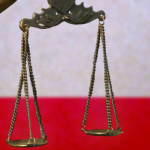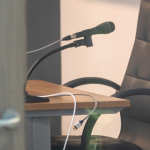Drive Better Outcomes
AI’s Promising Role With Expert Testimony
One area where artificial intelligence has gained a strong foothold in litigation practice is in the preparation and cross-examination of expert witnesses. This shouldn’t be surprising. Expert opinions are frequently case-determinative in litigation. For this reason, the litigator’s role in supporting or challenging expert testimony in depositions is a “leave no stone unturned” endeavor. Enter…
Read MoreOur View: Careful Digital Reporting Is Clearly Lawful in Texas
Earlier this year a trial court in Montgomery County, Texas, excluded from evidence a non-stenographic deposition transcript in a civil case pending in that court. In response to this order, opponents of non-stenographic recording have argued that this ruling should be extended to all non-stenographic recordings. As practiced by amici deposition services providers, the only…
Read MoreProtecting Deposition Materials at the Border
Government border agents conducted over 55,000 warrantless searches of cell phones and other electronic devices during the past year, according to recent federal reports. The latest statistics reflect a 17 percent jump in electronic device searches from fiscal year 2024 (running from October 2023 to September 2024). Federal agents conducted roughly 47,000 such searches that…
Read MoreDisparaging Language in Brief Prompts Professionalism Ruling
In the movie comedy Monty Python and the Holy Grail, there is a scene where King Arthur and his men, standing at the base of an imposing castle wall, demand entry to the castle, which they believe contains the grail. They are opposed, not with force, but with insults hurled down by a lunatic guard…
Read MoreWith Virtual Depositions, Technology Makes Good Lawyers Even Better
Tech experts frequently remind us that we’re vastly under-utilizing the digital technology that pervades our homes and offices. Smartphones are a prime example. As the New York Times recently pointed out, the latest smartphones can now record and transcribe calls, schedule messages for later delivery, translate text captured on camera, and look up what the…
Read MoreWeighing the Benefits of Digital Court Reporters
Digital reporting technology is revolutionizing the court reporting field, offering a reliable and efficient way to capture deposition, hearing, and trial testimony. Litigators today are increasingly utilizing digital reporting in their litigation practices. This innovation merits close consideration from every litigator. It is crucial to understand what a digitally reported proceeding entails and how it…
Read More









